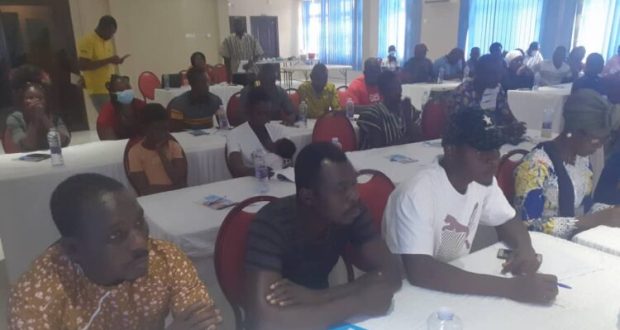It is globally recognized that conflict is detrimental to the peace of every nation, affecting not only those who are directly involved but bystanders and others who are far away from the conflict zone. This affects the development of such nations and worsens the plight of rural communities.
To avoid such occurrences in Ghana’s Mining-affected communities, the Centre for Public Interest Law(CEPIL) with support from the Ford Foundation offered paralegal training to some community activists in the northern regions of the country to enable them to prevent conflicts in their communities.
The training was designed to equip these focal persons in the communities with basic legal knowledge and skills on negotiations, the minerals and mining laws, particularly the areas bordering on compensation and the procedures for the resettlement of communities, conflict resolution, and property rights particularly women among others.
A few months after the exercise, beneficiaries began singing the praises of the programme emphasizing that the application of the knowledge they acquired during the training is helping to shape the narrative in their communities.
As Mr Aziz Nuhu, a beneficiary of the paralegal training from Funsi in the Upper West Region narrated that Conflicts have been occurring in his community for almost 23 years now. However, after the training, he started educating his people about the consequences of conflicts, and for some time now, the community has been peaceful
Mr Nuhu told the media that, “through Cepil’s training, I was able to learn something and I impacted my community.
He added, “ Funsi, in particular, is having problems with chieftaincy issues, so we always sit with the youth and try to educate them about the disadvantages of conflict, and frankly speaking after Cepil’s training, I have never witnessed that confusion in the area again we made them understand that conflicts do not bring development to any community.”
Mr Zuma Baba Yaro, a Paralegal Trainee from Talensi, in the Upper East region indicated that the training has helped in broadening his horizon as well as equipped him with some basic knowledge in law which he uses to resolve conflicts in his community.
Mr Yaro who was once a parliamentary candidate for one of the political parties said, ”What we do is that, normally when there are land disputes, we try to get the Clan heads to see how to resolve these problems since we completed the training, I have done about three of these conflict resolution engagements.”
Samuel Bugre Sapak, Paralegal Trainees, also from Talensi stated that the training was very beneficial as the knowledge he acquired helped him to resolve a domestic problem that occurred between two of his relatives
Mr Sapak narrated “Immediately after the training, my senior brother and the son had a problem in the house and the son Beat him, so he called me and asked that I come with the police so I said okay, but I didn’t go with the police. I went to the house and when he narrated his version, I patiently listened to him and listened to his son.
At first, I didn’t have time to listen but I listened to both of them so when they finished I could handle the case and there is peace in the House.
On her part, Kuri Muniratu Yahaya a beneficiary of the training from Bulenga in the Upper West Region hailed the organizers of the training for giving them tonic for delivery in their communities.
She said the training has helped her and her colleagues to intensify their advocacy to ensure that adequate compensation is paid to land owners by mining firms.
Ezekiel Azure, paralegal trainee from ZEBILA upper east region noted, “CEPIL’s Paralegal training has been beneficial to me. Before I became part of the training, I did not know about our mining regulations or the processes that are involved for a mining company or mining firm to start operations all those are things that I did not know, but in the training, I was made to know about the regulations. the mining laws, the processes that a mining firm is supposed to pass through before coming into the community. It was through the CEPIL’s training that we were equipped with this knowledge and experience.”











































